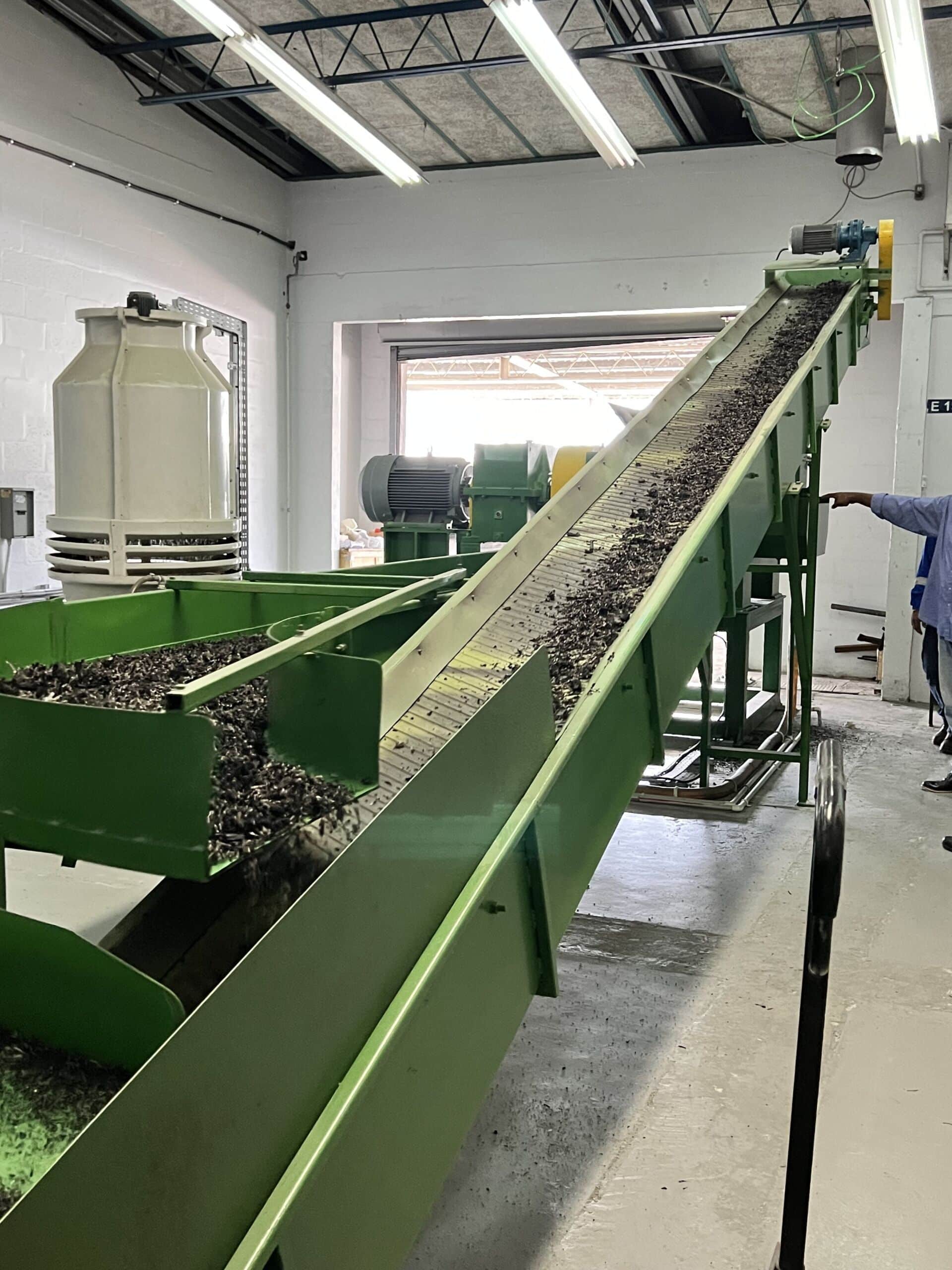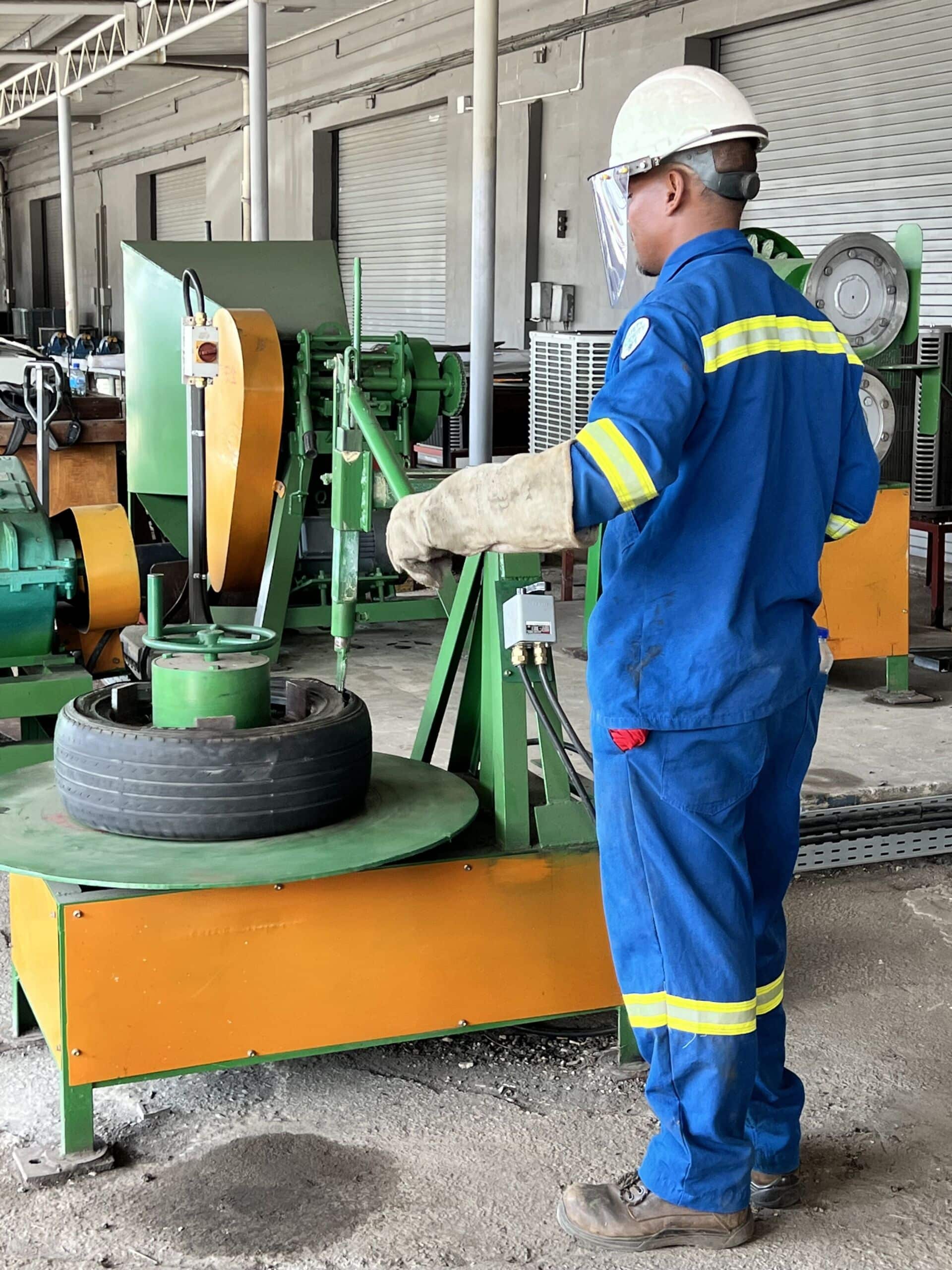WAITRO members, the Council for Scientific and Industrial Research (CSIR) of South Africa and the Caribbean Industrial Research Institute (CARIRI) of Trinidad and Tobago, have embarked on a transformative partnership aimed at fostering impactful change. With the renewal of a Memorandum of Understanding (MOU) between these two organizations, both esteemed members of the WAITRO family, a remarkable collaboration has unfolded. Under this framework, CARIRI has enlisted the expertise of two Consultants from CSIR to undertake a crucial Pre-feasibility Study. This study was meticulously conducted over an extensive six-month period, spanning from 2018 to 2019, with the goal of assessing the feasibility of establishing a waste tyre granulation (rubber crumb) and rubber asphalt plant in Trinidad and Tobago.
Rubber crumb, also referred to as crumb rubber and ground rubber, is defined as “rubber that has been reduced to a particle size of 3/8 inch or less”. The process of making rubber crumb involves shredding the tyres and removing the steel and polyester fragments; with the remaining rubber chips being further reduced to crumb-like particles/granules. These particles are then used in a number of applications, one of the most common being paving products. When crumb rubber is used in asphalt paving, it is termed crumb rubber modifier (CRM). CRM has been used in asphalt mixtures and in a number of asphalt paving products for numerous years. Rubberized asphalt is defined as an asphalt cement binder that has been modified with CRM and can be used in various asphalt paving products.
Generally, the addition of crumb rubber to asphalt has been shown to improve the durability of the asphalt, resulting in increased resistance to cracking, reduced temperature susceptibility, improved oxidation and aging resistance, as well as improved resistance to permanent deformation.
Based on the findings of the Pre-feasibility Study, which indicated the potential viability of a rubber crumb facility, but with support from the Government in the form of incentives,
CARIRI pursued the establishment of a small scale pilot facility for the undertaking of
developmental/investigative work which encompasses the following: a) comparison of
performance characteristics of locally produced crumb vis a vis imported crumb; b)
refinement of asphalt mixes; c) paving of test strips and performance monitoring of these
strips over a specified period; d) determination of scale up parameters once the locally
produced rubber crumb is of acceptable quality for downstream processing; and e) the
development of prototypes for downstream rubber crumb-based products with high export market potential.

Conveyor Belt – processing tyre strips into rubber crumb and powder

Granulator processing tyre strips into rubber crumb and powder.
The plant has been established and is operational. Further, the investigative/developmental work is ongoing, with the main activities being the design of
asphalt paving mixes, the production of rubber asphalt and the paving of a test strip.
SDG IMPACT
Once successfully demonstrated and commercialized, potential impacts would include addressing the adverse environmental impact arising from indiscriminate disposal of tyres; contribution to the circular economy via recycling of waste/end-of-life tyres; expansion of the local production base; and contribution to economic diversification via new business creation, employment and income generation, as well as foreign exchange earnings.
For more information on the project contact :
Hans-Erich Schulz (CARIRI) : ceo@cariri.com
Details

Date: The consultancy support was provided over the period 2018 – 2019. The project is ongoing.
Location: CARIRI, UWI Campus, St. Augustine, Trinidad and Tobago
Project Partners : CARIRI (South Africa), CSIR (Trinidad and Tobago)
- Collaborative Project
